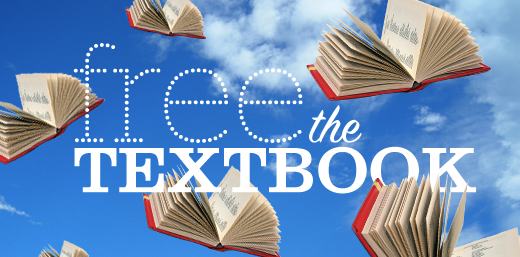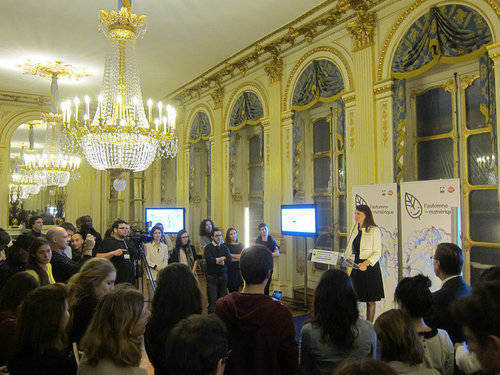A few weeks ago, CC co-hosted an open education meetup in London with P2PU, the Open Knowledge Foundation (OKFN), and FLOSS Manuals Foundation. We also led or participated in sessions and tracks on open science, makes for cultural archives, collaborations across the open space, and open education data at the Mozilla Festival immediately following the meetup. Several interesting projects have arisen from both the meetup and sessions, so we thought it worthwhile to mention here in case others would like to get involved.
Hit the Road Map: A Human Timeline of the Open Education Space
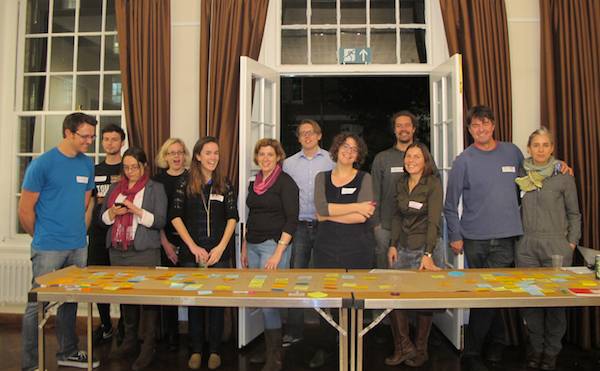
A Human Timeline of Open Education / CC BY
In addition to networking and sharing our common open education interests, participants of the Open Ed Meetup at the William Goodenough house collectively built a timeline of events that they felt marked important (and personal) milestones in the open education space, from the beginning of the Open University in 1969 to Lessig’s countersuit against Liberation Music this year. The timeline was a great collaborative exercise for the group, and one that we hope is only beginning. As Marieke from the OKFN writes in her post,
“…the plan is to digitise what we have by moving all the ideas in to Google Docs and then create a TimeMapper of them. This may form part of the Open Education handbook. At that point we will be able to share the document with you so you can add more information, correct the date and add in your own ideas. We may even try to run more open education timeline events.”
In fact, CC affiliates in Europe will be co-hosting the second Open Education Handbook booksprint with the OKFN and Wikimedia in Berlin as a result!
To see photos from the meetup, see both Creative Common’s and OKFN’s Flickr streams. Contribute to the timeline here.
Mozilla Festival
Getting hands-on with tools on the web for Open Science
by Billy Meinke

Gauges / Samuel Z. / CC BY
In another team-up with the Open Knowledge Foundation (OKFN), we ran a session investigating tools on the web that help make science more open. Hinging on the theme of alternative ways to measure (altmetrics) scholarly impact, collaborators joined us in the session and got hands-on with tools that we can use to see how publications and other research outputs are talked about and shared on the web. To help build content for lessons linked to the Open Science course in the School of Open, participants tested a handful of free tools to see what they were able to measure, how usable the tools were, and considered ways to share this with others who aren’t familiar with altmetrics. We will be organizing the content over the next few weeks, and offering the altmetrics lesson as a standalone exercise once it’s complete. For more information about how the session went, see this blog post.
Collaborations across the Open Space
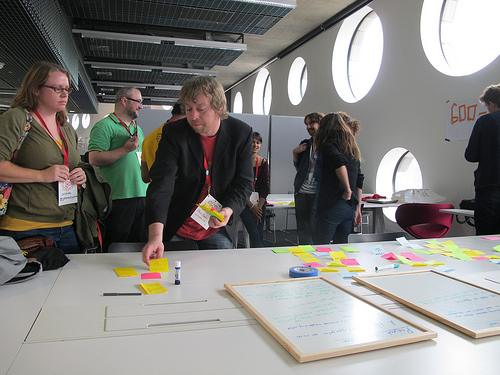
Mozfest: Collaborations Across the Open Space / CC BY
We also participated in a session with Wikimedia, OKFN, and other orgs to talk about how we could better collaborate and share news among our organizations so we don’t keep reinventing the wheel. I won’t go into detail here, as the wiki session writeup does it much better, and has continued to grow since the festival. For example, something as simple as a blog aggregator for all “open” related news would help those working in this space tremendously. To join our efforts, head over to the wiki and add your thoughts and be notified of follow-up meetings.
Digital Self Preservation Toolkit
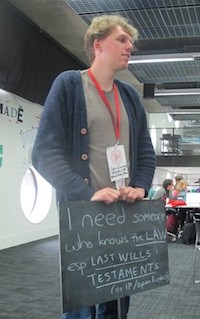
Seeking a lawyer… / CC BY
One neat thing to come out of this year’s Mozfest was the beginnings of a Digital Self Preservation Toolkit exploring the idea of what happens to your body of creative, educational, or scientific work when you die. Some questions we asked and discussed were: In your country, what happens to your work when you die? What steps can you take to ensure its posterity? How would you want it shared and who would you want to own it? Our initial aim was to develop a set of tools and tips to help people think through how they might want to release their work upon death, building on an idea that the Question Copyright folks had last year around a free culture trust. Skirting the technical and legal issues for the time being, we came up with a prototype IP donor badge that creators might use to signify their intent, a concept form that they would fill out, and a mock-up website where such a toolkit might reside. We are now continuing our efforts in collaboration with folks from numerous organizations interested in the same questions, and you can join us to move the project forward at the Free Culture Trust wiki.
OER Research Hub’s Open Education Data Detective
Lastly, we’d like to highlight our collaboration with the OER Research Hub, who held a “scrum” on visualizing open education data called the Open Ed Data Detective. Participants experimented with open education data that the OER Research Hub made available, including data on School of Open courses.

